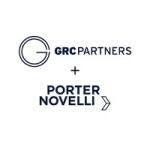Counterfeit software sacrifices PC performance, safety and energy efficiency

A recent international study commissioned by the Harrison Group and Microsoft, highlights the negative impact of consumers using counterfeit software.
Testing was conducted on both genuine and counterfeit Windows and Office software, many of which had come from some of the most popular channels of pirated software distribution, including peer-to-peer file sharing, independent hardware dealers and street market stalls.
Results showed that when booting up, genuine Windows machines outperformed those with pirated installations 60 percent of the time, and machines running genuine Windows and Microsoft Office software outperformed pirated counterparts 75 percent of the time.
In addition, one in four machines with pirated operating systems became infected at installation, or independently downloaded and installed malicious software when first connected to the internet.
Mark Rees, National Technology Officer at Microsoft New Zealand says these are frightening statistics, but they are designed to inform consumers about the pitfalls, not scare them from using their PCs.
“The presence of high-quality fakes in the market today makes distinguishing counterfeit software from the genuine article a continuing challenge for consumers. The most recent incident at Smart PC in Hamilton, where a consumer unknowingly spent $500 on counterfeit software and had personal data destroyed, is a prime example of the damage counterfeit software can do. The best way to avoid pitfalls and ensure you buy genuine software is to follow the Microsoft Buyer’s checklist."
"It is also important to note that counterfeit software not only impacts heavily on consumers but also on local and global economies. Pirated software creates a $1.5 billion disadvantage in local economies around the world – something which in turn hinders job opportunities and stifles innovation.”
The study also found that genuine Windows machines running processor-intensive programmes for an hour outperformed pirated operating systems by 60 percent, and the battery life across all genuine machines lasted on average 26 minutes longer than pirated counterparts. This is a significant benefit for those who need their machines to stay alive while working remotely, or for those who simply want to get the most of out their PCs.
Matt Schmitt, a Hamilton computer user, unknowingly purchased counterfeit software earlier in the year.
“I paid $199 for a new copy of Windows XP and was provided with the key, but not the disk. I asked for the disk (and if they couldn’t provide one, a refund) but was told I had didn’t need one. When I got home I realised the key wouldn’t activate the software and it took only seconds for my PC to become infected with viruses and spyware."
"I lost a lot of personal data and the pirated software caused huge frustration, especially when I had to have it replaced at an additional cost – I’m hoping my story will mean that others don’t have to go through the same issues I have had.”
Microsoft released these findings as part of Play Fair Day, which aims to educate businesses, consumers and governments to play by the rules, learn the benefits of using legal software and build respect for intellectual property. The aim is to help educate businesses, governments and consumers that the decision to utilise fake software is not only dangerous for personal property and information, but dangerous to the economic landscape as well.
More information on software piracy and its effects can be found on the official Microsoft antipiracy Twitter account, @MSFT_BuyLegit or at www.playfairday.com.
If you suspect your software might be pirated, please email nzpiracy@microsoft.com.
